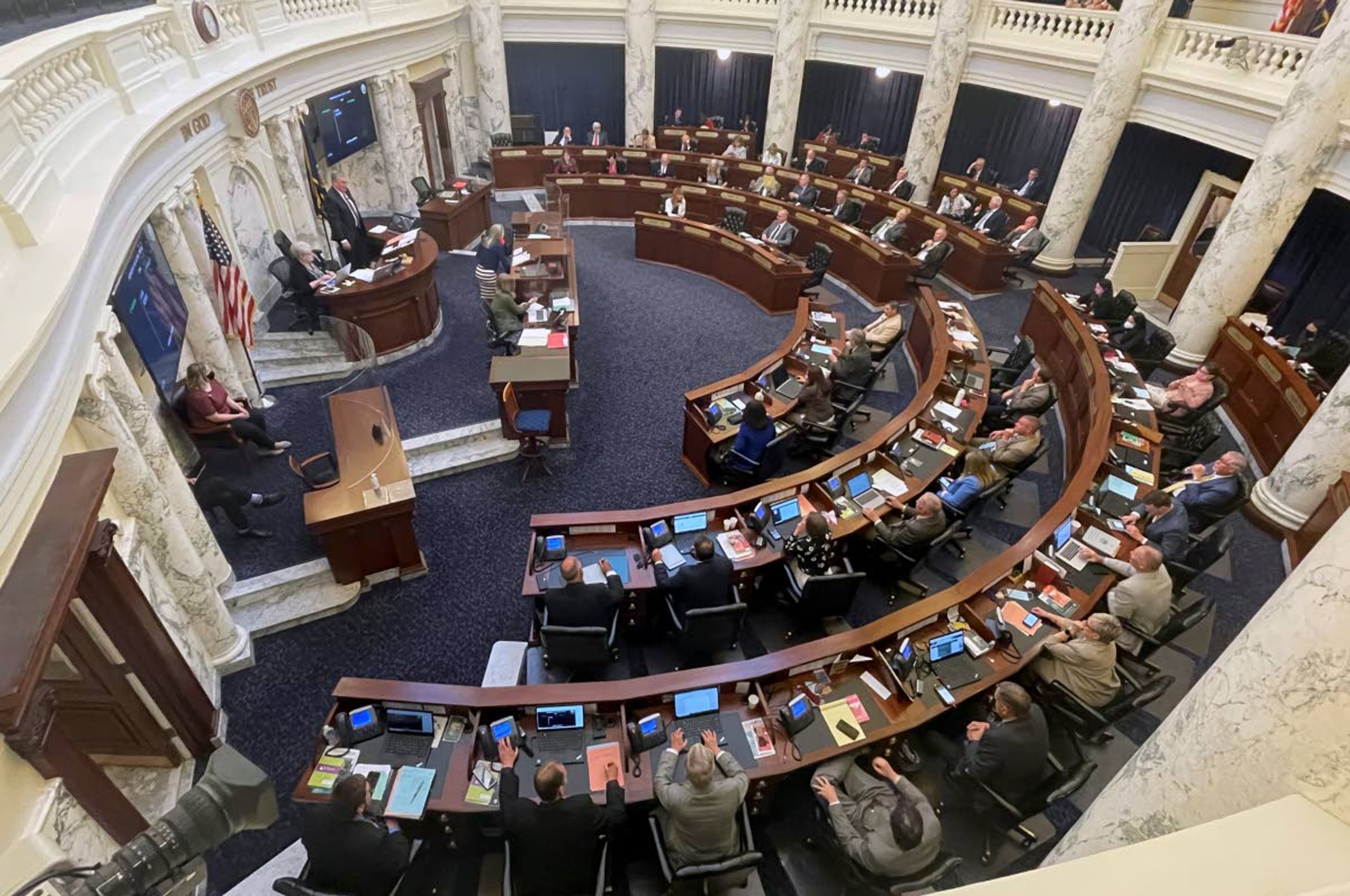BOISE — A proposal that criminalizes sending nude photos or other sexual material to someone without their consent went to the House floor for possible amendments Tuesday.
House Bill 625 makes it a misdemeanor to text, email or otherwise distribute unsolicited images showing “nudity, sexual conduct or sadomasochistic abuse” to someone, if the intent is “to annoy, terrify, threaten, intimidate, harass or offend, or to arouse, appeal or gratify the lust, passions or sexual desires” of the recipient.
The legislation is sponsored by Rep. Caroline Troy, R-Genesee. She first became aware of the issue after being contacted by students at the University of Idaho.
“My generation doesn’t understand what’s going on with young people these days, this steady stream of images that are being sent to them,” she told the House Judiciary and Rules Committee.
Katelyn Hettinga, a UI junior and vice president in the Associated Students University of Idaho student government organization, testified in support of the bill.
She cited studies indicating that more than 70% of women have received unsolicited sexual material. It’s not only shocking and disrespectful, but can cause women to feel targeted and unsafe.
“Sending sexual material is a sexual act, and like other sexual acts it requires consent,” Hettinga said.
Distributing sexually explicit images to minors is already illegal in Idaho. However, nothing currently prohibits sending them to other adults, even without their consent.
HB 625 would make the practice a misdemeanor punishable by a fine of up to $1,000 or up to a year in jail.
David Martinez, chief public defender for Bannock County, testified in opposition to the bill, saying the definition of sexual material was so broad it could be used to charge someone for sending a picture of a nude sculpture, like Michelangelo’s “David.”
“I’ve seen cases where this kind of statute has been used as a retaliatory device (by prosecutors),” he said. “I’m concerned about how it would be applied.”
Several members of the committee had similar concerns. For example, Rep. Colin Nash, D-Boise, worried that if two consenting adults exchanged images and their relationship later went south, one aggrieved party might end up accusing the other of a crime.
Other committee members felt the concerns about a rush of criminal prosecutions were overstated, given the need to prove intent.
“We can regulate ’til the cows come home and never stop people from doing bad things,” said Rep. Julianne Young, R-Blackfoot. “But we have a justice system for a reason. It’s to protect people by providing consequences when someone does something wrong.”
In an effort to keep the bill alive, the committee agreed to send it to the House floor for possible amendments. The intent is to tighten up some of the language, including the definition of sexual material.
Spence may be contacted at bspence@lmtribune.com or (208) 791-9168.









